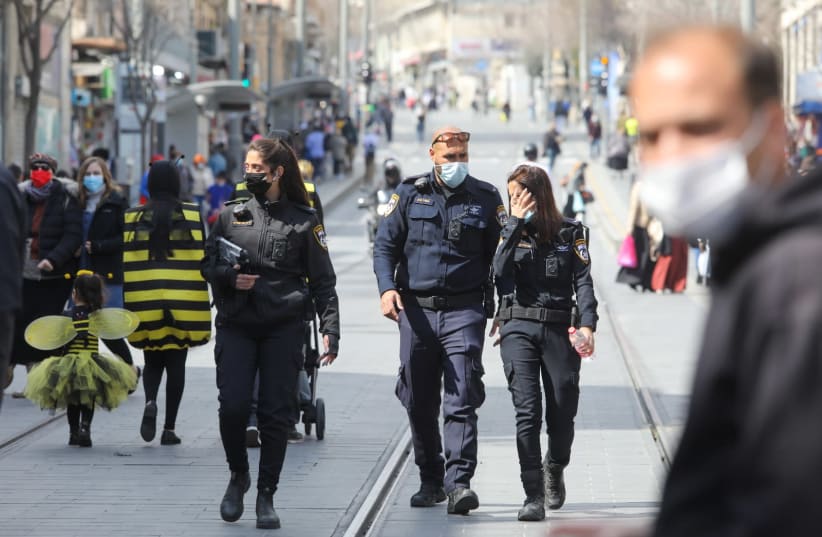According to the government decision, which some media reports misinterpreted as ending the program completely, the Shin Bet will no longer conduct surveillance in a broad manner.
Rather, it will only use its technological tool to determine the travels and interactions of corona-infected citizens who refuse to cooperate with the state’s epidemiological probes or who report zero interactions with others – at least until March 28.
Moreover, the government has set two barometers which could lead to the Shin Bet program completely freezing.
If new corona infection rates per day drop below 1,000 or if the spy agency is only locating 5% of new infections exclusively (the epidemiological probes missed certain interactions with infected citizens), then the program will halt as long as those parameters are met.
The government’s shift on the issue comes following a March 1 High Court of Justice ruling ordering such a shift as well as pressure from the Shin Bet itself to extricate the organization from the issue so that it can focus on its primary mission of counterterrorism.
An announcement on Tuesday by the Knesset Foreign Affairs and Defense Committee (FADC) noting the government decision was the first official confirmation after a variety of contradictory reports about what the government had done.
The expected hearing on Wednesday will also fill an oversight gap which has existed since March 3, when the committee’s last endorsement of the program expired.
On February 15, the FADC held a hearing on the issue in which it extended authorization to the Shin Bet to maintain surveillance only until March 3.
In all past instances when the FADC has extended the program by three weeks, an explicit provision in the summer 2020 corona law, it has met again three weeks later to carry out its oversight role and extend the program, often with certain conditions.
However, on March 3, a spokesperson for the FADC confirmed that no meeting was scheduled for that day or for the near future.
Wednesday’s expected meeting will finally fill the oversight gap.
But the expected FADC hearing does not appear to signal any attempt to reign in the program beyond what the High Court has ordered.
In fact, at the last hearing on February 15, most of the FADC members failed to attend, with the Shin Bet surveillance extended by a 3-0 vote.
If in most past hearings there had been spirited debates to demand ending the surveillance or to replace it with the Magen 2 cell phone app or a new traffic light app, most of the February 15 hearing was chairman Zvi Hauser accosting the Health Ministry for not using Shin Bet surveillance broadly enough.
In that hearing, he accused them of gross negligence for not using the surveillance or sending messages to go into quarantine to corona exposed persons who were previously infected or have been vaccinated.
It is possible that the High Court’s limitation on the Shin Bet surveillance could be removed in the future as the justices appeared to make their ruling conditional on a continued drop in infection rates.
So while the government has shifted the program into low gear, if infection rates spike again at any point, there is no indication that either the High Court or the Knesset would step in to prevent the Shin Bet from returning to maximum surveillance levels.
